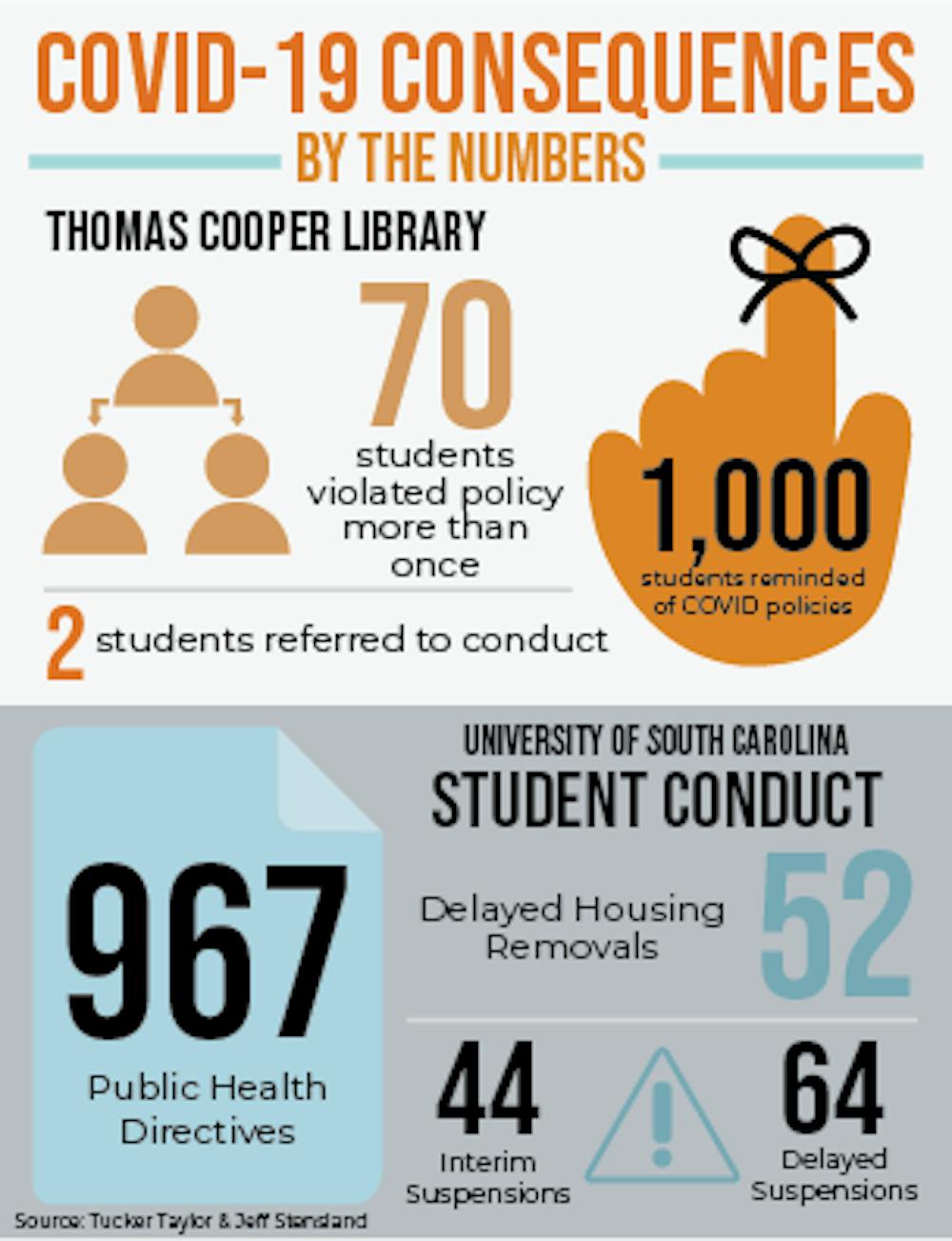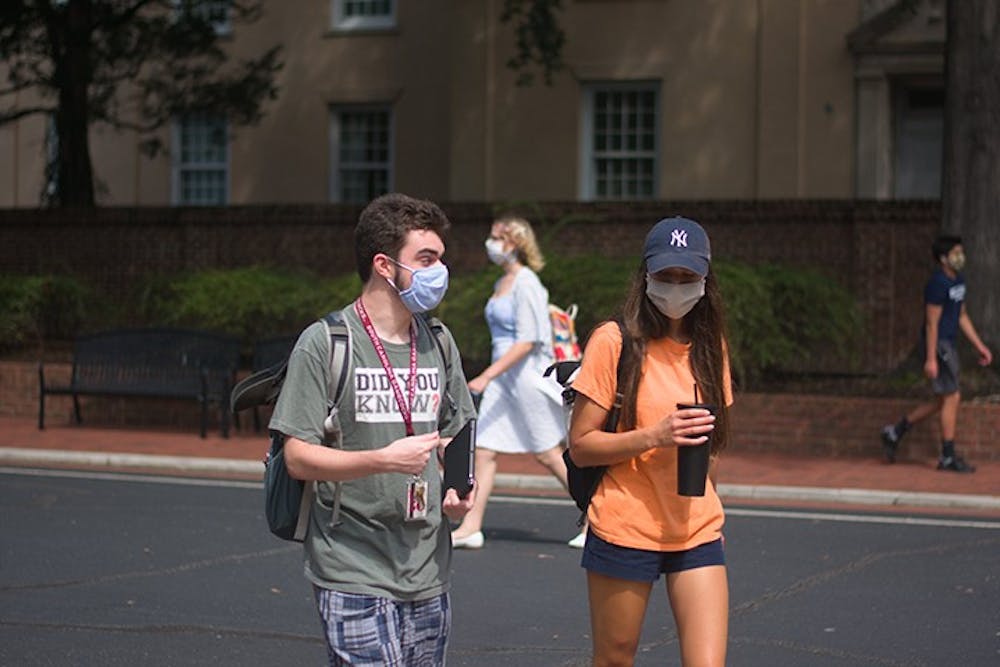There have been almost 1,000 student violations of university COVID-19 regulations since the start of the semester. Students have received interim and delayed suspensions, housing removals and educational sanctions.
In Thomas Cooper Library, students who are not complying with university coronavirus policies will have their CarolinaCard scanned to report the incident. First-year undecided student Savanna Moore was sitting in the library when her card was first scanned: She sipped her water and then spoke to her friend with her mask down.
“[A student worker] just came up to me and said, ‘I need your Carolina Card,’” Moore said. “I was kind of confused, and I pointed at it in the back of my phone because I thought he didn’t think I was a student, but then he was like, ‘No, I need to scan it because you didn’t have your mask on and you weren’t drinking water.’”
Moore was told she could receive a fine of up to $40, but the Office of Student Conduct and Academic Integrity said it is not currently fining students for breaking COVID-19 policy.
“There is no fine for a violation of a public health directive, so the fine would be zero,” Maureen Grewe, the director of student conduct, said. “We’re not doing that right now. The library is currently reporting students to our office who are causing a concern or disturbance that’s impacting other students’ ability to successfully use the library.”
Fining students is not a penalty the library is handing out either, according to Beth Bilderback, co-chair of the Emergency Preparedness and Response Team for University Libraries. When students violate library protocol, they are only referred to the Office of Student Conduct if they don't cooperate with staff.
"We do employ a number of student workers, so during the training, that student may have just misunderstood what was going on," Bilderback said.
The Office of Student Conduct is following its normal protocols when reviewing reports of students violating COVID-19 regulations, Grewe said. After reviewing the report, they meet one-on-one with the students involved to hear their perspective.
In the library, staff members are scanning CarolinaCards to keep track of the number of times students are asked to put their masks on. According to head of circulation Tucker Taylor, over 1,000 students have been reminded of the policies as of Nov. 6 and library staff has followed up with about 70 of those students for violating regulation more than once. Of the roughly 70 students, only two have been referred to student conduct.

“For the students where there is a preponderance of the evidence and they’re found responsible for failing to comply with the public health directive, then we’re giving them educational sanctions,” Grewe said.
As of Nov. 3, there have been 44 interim suspensions, with five being unrelated to COVID. There have also been 64 delayed suspensions, which is essentially probation. Students under delayed suspension are allowed to continue attending class but must follow guidelines given to them by student conduct. If the student fails to follow the guidelines, they are immediately suspended.
This semester there have also been 52 delayed housing removals. This is where the university requires a student to relocate prior to their student conduct hearing.
In total there have been 967 public health directive cases. According to university spokesperson Jeff Stensland, undergraduate students make up a large portion of these numbers and the health directive cases are predominantly from on-campus residence halls.
“I got in trouble with my RMs because there were five people in my room, and apparently that can be a $250 fine because there can only be four people,” Katie Langan, a first-year advertising student, said.
But according to the conduct office, students will not be fined for violations. The Office of Student Life sent an email to the student body reminding on-campus residents there can only be two visitors in standard double dorm rooms. In apartments, two people can be in each bedroom, and four people are allowed in the living room.
"We've got 33,000 students here," Stensland said. "Many of them are doing the right thing, and they're still socializing and having a good time with friends, but they're doing it in a way that doesn't endanger public safety, and we think that's the vast majority of our students."

